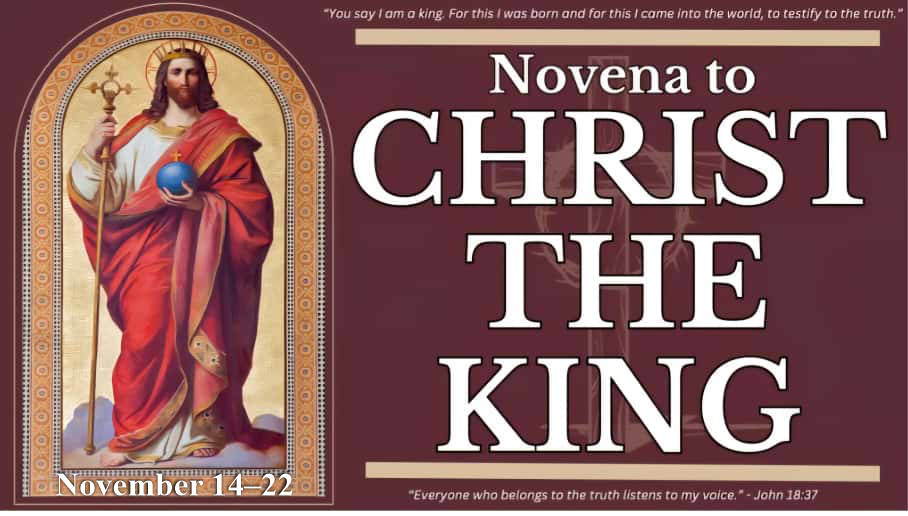
MEMORIAL OF SAINTS NICHOLAS TAVELIC, PRIEST, AND COMPANIONS, MARTYRS AND SAINT LAWRENCE O’TOOLE, ARCHBISHOP OF DUBLIN | NOVEMBER 14TH |
FRIDAY OF THE THIRTY-SECOND WEEK IN ORDINARY TIME NOVENA TO CHRIST THE KING | NOVEMBER 14-22, 2025 | https://dailyreflectionswithphilomena.com/novena-to-christ-the-king/ Novena to Christ the King starts today!...


